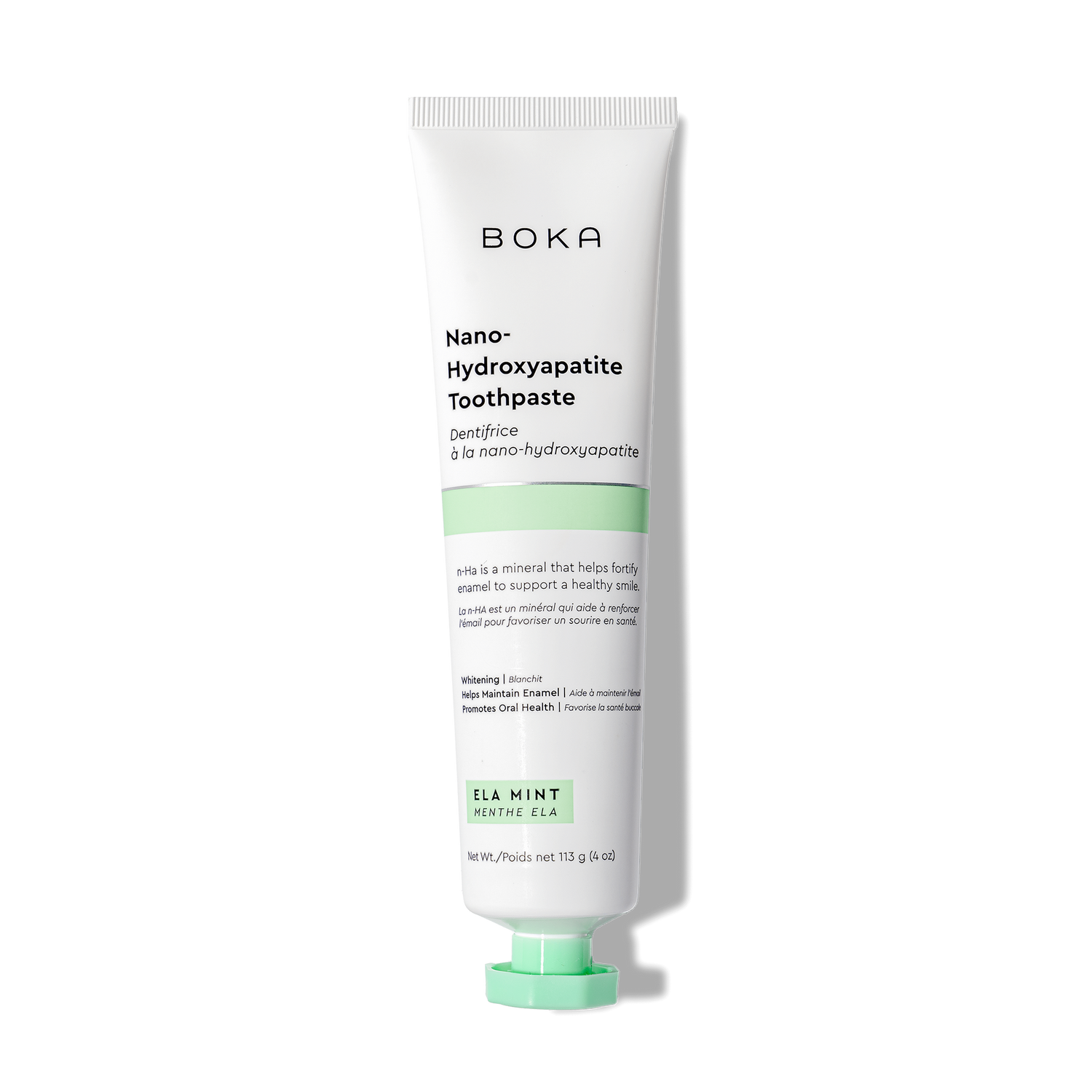You’re standing over the sink, toothbrush in hand, knuckles white as you roll and squeeze as hard as possible. You meant to replace that empty tube days ago – and now, you’re all out.
You rummage through the medicine cabinet, all three drawers, an old toiletries bag – Jackpot! A handy travel-sized tube of salvation.
But now you get to thinking: How long has this tiny savior been hidden away? Could it be from last year's holiday … or was it the year before that? This thing could be older than you, for all you know!
Does toothpaste expire? Can you use expired toothpaste? And what happens if you do?
Luckily, this article will run through everything you need to know about toothpaste’s expiry date and expired toothpaste’s effects. We’ll take a look at:
- Whether toothpaste expires
- Whether it’s safe to use expired toothpaste, and what happens if you do
- Signs of expired toothpaste.
Let’s get started!
Does Toothpaste Expire?
The answer is yes! Like most pharmaceuticals, cleaning products, and cosmetics, toothpaste does have a shelf life.
Both the American Dental Association (ADA) and the U.S. Food and Drug Administration (FDA) require toothpaste to have an expiration date. Each individual tube of toothpaste should have its own expiration date printed on the box and tube.
Typically, toothpaste is okay to use up to two years after the manufacturing date. However, this can vary due to factors such as ingredients, storage, the formula of the toothpaste – and even the packaging.
If the toothpaste is completely sealed and stored in a cool, dry place, it may last longer than two years. As with all products, checking the best-by-date on your tube or box it came with is essential.
Is It Safe To Use Expired Toothpaste?
Now that we’ve established that toothpaste does expire, what cruel fate faces all those handy travel-sized tubes hidden away?
Although it’s safe to use toothpaste past its expiry date, it’s not conducive to maintaining good oral health. Amongst other downsides to using expired toothpaste, there is a decreased efficiency in cleaning your teeth.
The purpose of toothpaste, in general, is to remove plaque and strengthen enamel – keeping your teeth and gums healthy. Toothpaste that has been sitting for a long time is less effective at doing this.
What Happens If You Use Expired Toothpaste?
It’s highly recommended that you replace expired toothpaste immediately.
However, we all know there are times when you’re simply out of options! So what happens when you rely on that travel-sized saving grace from yesteryear?
Decreased efficiency
This is the main concern when using expired toothpaste. Some active ingredients in toothpaste, such as fluoride, might dissipate over time – reducing their benefits when you use this toothpaste again.
Fluoride is a key ingredient in conventional toothpaste, and other ingredients target different aspects of oral hygiene.
Over time, your toothpaste won’t be as efficient as removing plaque or strengthening enamel if these ingredients dissipate.
The good news is there are alternative toothpaste options that do not rely on fluoride such as those from Boka – but we’ll get to that soon.
Bacterial growth
Many toothpastes have preservatives and sealing around the tubes to promote a clean, bacteria-free environment.
If you cracked the seal on your toothpaste tube some time ago, bacteria may be present. Bacteria thrive off water residue and can be present on bathroom surfaces.
Fungi and bacteria will start to grow once the shelf life of the toothpaste is over. Foreign fungi and bacteria are harmful to your oral health.
Altered flavor or texture
Expired toothpaste might be less paste-like and more crumbly.
This change in structure can prevent the typical foaming of toothpaste in the mouth which results in fresh breath. Moreover, that classic mint flavor can lose its spice over time.
Allergic reactions
These are rare but still possible! If you’re prone to flare-ups or have particularly sensitive allergies, avoiding expired toothpaste is a good idea.
Alternatively, you can test the toothpaste on a bit of your skin to see if you react.
Signs of Expired Toothpaste
What are some signs of expired toothpaste? Here are some obvious signs that your toothpaste is expired:
Changed texture or consistency
As mentioned above, your toothpaste might lose its typical creamy texture and become more dry and clumpy.
Separation of ingredients
The separation of ingredients naturally occurs in many products, including skincare, makeup, or food.
In toothpaste, it can be a sign of its expiration date. A sure sign is if you notice oil or watery liquids separate from the rest of the paste.
Separating ingredients could mean the original formulation isn’t as effective anymore. This separation occurs over time, such as when peanut butter separates from the butter and the oil.
Unpleasant or unusual odor
This is a telltale sign of expired toothpaste. Instead of a typical minty and fresh smell, the toothpaste could be more sour or bland.
One of the many benefits of brushing your teeth is the fresh and clean feeling you get. If your toothpaste smells off, it’s time to get a new tube.
Altered taste or flavor
As previously discussed, the toothpaste might change in taste over time. Similar to the smell, it will likely become more sour and less minty – leaving a bland and stale taste in your mouth.
Once the two years' elapse, the flavoring also starts to disappear, and this is what makes it bad for your taste buds. The new flavor can be awful and might end up lasting for long in your mouth.
Frequently Asked Questions
Does unopened toothpaste expire?
All toothpaste will have an expiration date by which you should try and finish the tube.
Unopened toothpaste can last long past its expiration date if its seal remains intact and you are sure it’s been in a cool, dry place.
What to do with expired toothpaste?
While safe to use, expired toothpaste doesn’t have as many oral health benefits as toothpaste within its expiry date.
It’s best to replace your toothpaste when you notice it’s expired. You may be able to recycle your toothpaste tube, depending on its packaging and our local rules.
How long is toothpaste good for after the expiration date?
Typically, toothpaste is okay to use up to two years after the manufacturing date. However, this benchmark can vary due to ingredients, storage, and packaging.
If sealed and stored in a cool, dry place, it’s okay to use – just watch for any of the telltale signs listed above.
So What About That Astronaut Paste? Introducing Boka!

So you’ve finally decided to get rid of that crumbly old toothpaste (good riddance).
You’ll now need a new one! But we all know this isn’t as easy a decision as it seems, especially with supermarket shelves lined with hundreds of iterations of virtually the same product.
Unlike most other names in oral hygiene, Boka uses Nano-hydroxyapatite (n-Ha) instead of fluoride.
First used by NASA astronauts in space, n-Ha rebuilds teeth without the toxins found in fluoride. n-Ha boasts many benefits and eliminates the risk of fluorosis or other adverse side effects linked to the chemical.
If you’re tired of the old guard, sick of settling for classic mint, and conscious of the health effects of your toothpaste, then Boka could be worth checking out. Boka’s toothpaste is fluoride-free, NASA astronaut-trusted and dentist-approved.
“I now recommend a toothpaste containing nano-hydroxyapatite particles. They outperform fluoride when compared side by side, and the best part is that they’re completely non-toxic. My preferred nano-hydroxyapatite toothpaste is Boka’s Ela Mint Toothpaste." - Dr Mark Burhenne, DDS.
Boka supports enamel strength and sensitivity and comes in various refined flavors such as Cinna Mint, Lemon Lavender, and Ginger. Boka also offers a whitening paste for those wanting a bright smile.
You can read more about Boka’s n-Ha options and the benefits of Nano-hydroxyapatite or n-Ha here!
Related Reads:
- Why Avoid Fluoride in Toothpaste?
- What To Look For In Toothpaste?
- Is Nano-Hydroxyapatite Better Than Fluoride? (Comparison)
- Does Fluoride-Free Toothpaste Work?
- Pros and Cons of Fluoride Toothpaste
- Do Adults Need Fluoride Toothpaste?
- Floss Before or After Brushing: Here’s What Experts Say
- How Long Should You Brush Your Teeth? (+Expert Tips)
- 14 Essential Oral Hygiene Tips


